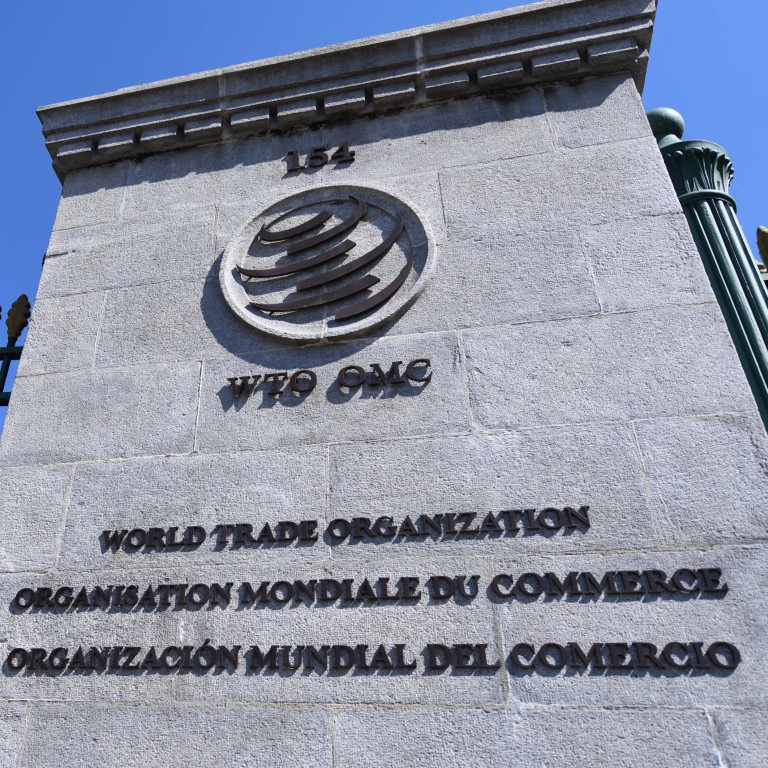
China berates EU at World Trade Organization for policies it calls unfair
- In Geneva, China’s WTO ambassador, Li Chenggang, condemns a raft of EU policies intended to address Europe’s long-standing trade grievances with Beijing
- No measure mentions China directly, but they have been built to address Chinese policies that WTO rules are ill-equipped to handle, EU officials admit
China lashed out Monday at European Union trade measures aimed at Beijing, claiming they would have “serious ramifications” for the world trading system.
At a World Trade Organization (WTO) meeting in Geneva, China’s ambassador Li Chenggang condemned a raft of EU policies intended to address Europe’s long-standing trade grievances with China.
He railed against a foreign subsidies act, investment screening, and a critical minerals law, described as “unjustified and discriminatory”. The European Chips Act was also panned as a front for “expanding export control measures” and hiking subsidies, according to a Geneva trade source.
No measure mentions China directly, but they have been built to address Beijing policies that WTO rules are ill-equipped to handle, EU officials privately admit.

The policies have also been carefully constructed to fit within the WTO’s rules, even if Brussels expects some of them to be challenged at the Geneva trade courts.
As part of this muscular new trade stance, EU officials are preparing to propose a new economic security strategy later this month. It will recommend restricting some European investments in sensitive hi-tech sectors, such as artificial intelligence, semiconductors and quantum computing.
Again, the strategy is not expected to name China as the target, but it was first announced during a keynote address on China by European Commission President Ursula von der Leyen in March, a speech that laid out plans to “de-risk” the bilateral trading relationship.
Sabine Weyand, director general for trade at the commission, said on Monday that the policy was needed “in the current geostrategic environment of increased uncertainty and risks marked by systemic rivalry”.

The exchange took place at the EU’s trade policy review, a triennial forum where other WTO members can air grievances.
China, as well as a number of other countries, took shots at Brussels’ climate policies, including the climate carbon border adjustment mechanism (CBAM).
CBAM, which is expected to be instituted in October, is a cornerstone of the EU’s quest to reach climate neutrality by 2050. After it takes full effect, companies wanting to sell goods into the EU must buy certificates reflecting the emissions generated in producing them.
Li said it would unfairly penalise developing countries, according to the source – a complaint common across the global south.
The EU’s net-zero industry act, which could in the future restrict Chinese shipments of batteries, wind and solar power equipment to the bloc, “ran counter to the market principles and the basic rules” of the multilateral trading system, Li said.
China seeks WTO review of chip export restrictions led by US
The EU’s climate policies provided ample fodder for officials from other WTO members who took the floor during the meeting. A representative from Taiwan, a member, urged Brussels to work to “ease the potential impact and concerns” over CBAM.
Russia said the tax would “fundamentally challenge the structure of global goods flows and the state of competition in the world’s largest markets”.
Defending the bloc’s green policies, Weyand said that “domestic policymaking is essential to deliver on the Paris Agreement commitments and that no action is not an option”, according to the source.
In less combative remarks, China praised the “important role played by the EU” in keeping the WTO afloat. Both are members of an alternative appeal court that had to be established after the United States blocked the appointment of new judges to the traditional appellate body.
Li also praised the EU’s efforts to achieve “strategic autonomy”, a phrase often used by Chinese officials for any policy that establishes distance between Europe and the US.
Washington’s envoy to the WTO, María Pagán, also offered a laundry list of complaints about EU trade policy, including its “hazard-based approach to regulations” – which restrict market access based on exposure to chemicals – and the use of geographical indicators that prevent US wine exporters using terms like “tawny, ruby and chateau” when hitting the European market.

